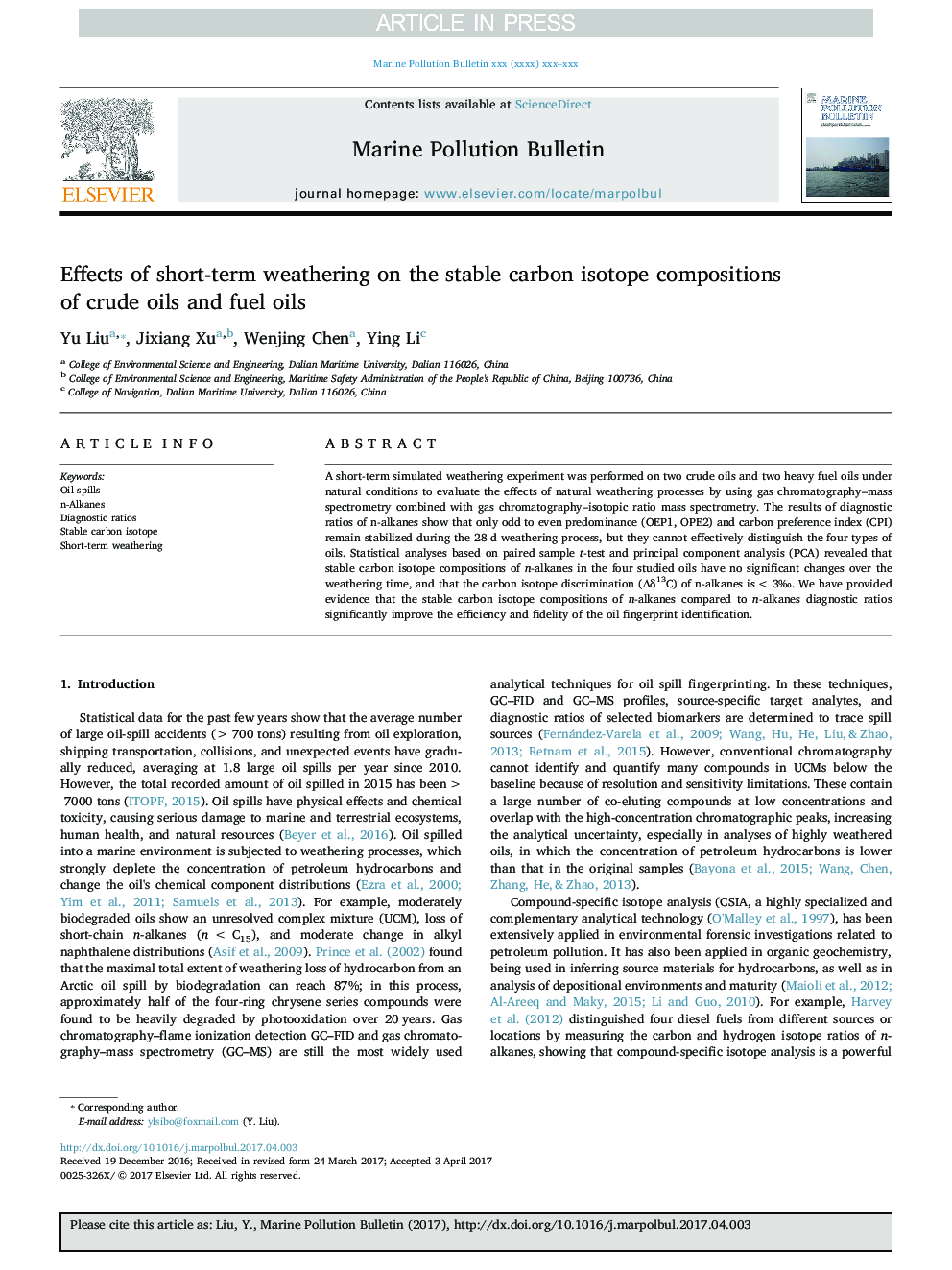| Article ID | Journal | Published Year | Pages | File Type |
|---|---|---|---|---|
| 5757949 | Marine Pollution Bulletin | 2017 | 7 Pages |
Abstract
A short-term simulated weathering experiment was performed on two crude oils and two heavy fuel oils under natural conditions to evaluate the effects of natural weathering processes by using gas chromatography-mass spectrometry combined with gas chromatography-isotopic ratio mass spectrometry. The results of diagnostic ratios of n-alkanes show that only odd to even predominance (OEP1, OPE2) and carbon preference index (CPI) remain stabilized during the 28 d weathering process, but they cannot effectively distinguish the four types of oils. Statistical analyses based on paired sample t-test and principal component analysis (PCA) revealed that stable carbon isotope compositions of n-alkanes in the four studied oils have no significant changes over the weathering time, and that the carbon isotope discrimination (Îδ13C) of n-alkanes is < 3â°. We have provided evidence that the stable carbon isotope compositions of n-alkanes compared to n-alkanes diagnostic ratios significantly improve the efficiency and fidelity of the oil fingerprint identification.
Related Topics
Physical Sciences and Engineering
Earth and Planetary Sciences
Oceanography
Authors
Yu Liu, Jixiang Xu, Wenjing Chen, Ying Li,
